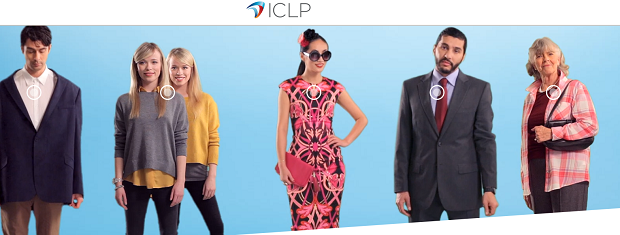A new study finds 59% of British shoppers would be encouraged to spend more with a brand if they had a loyalty programme.
Global loyalty marketing agency, ICLP reveals that the desire for innovative loyalty programmes is high on the agenda for consumers when considering their preferred retailers.
This is particularly true of Baby Boomers, with 74% claiming they would be encouraged to spend with a brand that has a loyalty programme.
This compares with 58% of those from Generation X, and 41% of Millennials, demonstrating that there is plenty of appetite for loyalty programmes, however, these programmes must do more to continue to engage younger audiences.
The study, commissioned by ICLP’s parent company Collinson Group, examined consumers’ attitudes towards brand loyalty.
Key findings show:
• 59% of consumers claim they would be encouraged to spend with a brand that has a loyalty programme
• 63% of all shoppers would be encouraged to shop more frequently or spend more with a brand if they received discounts on future purchases
• 36% of consumers expect personalisation on offers when they walk in-store
Jason De Winne, General Manager at ICLP, commented: “Retail continues to evolve at a rapid rate, with brands both online and offline battling for loyalty in an increasingly crowded space. Gone are the days when a loyalty card alone would encourage consumers to choose a particular retailer above all others – the stakes are much higher now. Effective loyalty programmes need to recognise and cater to what customers value, such as being greeted by name when entering a store, personalised offers or VIP events, in order to drive brand engagement and devotion.”
The survey found that while consumer interest in loyalty programmes is high, as 59% of shoppers stated they would be encouraged to shop more with a brand if it had a loyalty scheme, retailers need to look beyond traditional points-based programmes to find ways to inspire higher or more frequent spend from shoppers.
• 63% of all shoppers would be encouraged to shop more frequently or spend more with a brand if they received discounts on future purchases
• 36% of consumers expect offers that are personalised and relevant to them when they walk into a store, showing that many expect retailers to use data insights to create a more valuable, customer-centric relationship
• Millennials are much more likely than Generation X and Baby Boomers to be driven to loyalty through a personal approach, as a quarter will be loyal to brands that offer a stylist to advise them based on purchases, and 22% claim suggestions based on past purchases drive their loyalty
• 18% of consumers are likely to spend more in a retail store where they are greeted by name and made to feel like a valued customer
• Companies that are able to send receipts via email get more repeat visits from consumers, as this is something 22% of those questioned stated would lead them to shop more frequently with a retailer
• Increasingly, consumers will choose retailers that offer money-can’t-buy experiences (11%) or a stylist to advise on purchases (11%) over those that don’t offer personalised benefits. This shows the need for loyalty programmes that offer unique and exclusive experiences
De Winne adds: “Nowadays, personal, unique rewards are more important as loyalty drivers than price alone. To win in this competitive retail landscape, brands need to focus on creating loyalty programmes that generate insight and enable retailers to entice customers back with relevant offers – encouraging them to spend and shop more frequently. From money-can’t-buy experiences to personal greetings and a strong social media presence, customers want to ensure their hard-earned cash is spent with brands that are prepared to invest in a meaningful and personal relationship.”
Methodology
*Mass Affluent Research undertaken by Survey Sampling International across 1,014 UK consumers, on behalf of ICLP’s parent company, Collinson Group, February 2016. Random error on a sample of this size is +/- 2.2% at the 95% confidence level.
Source: http://www.iclployalty.com
